Filter by
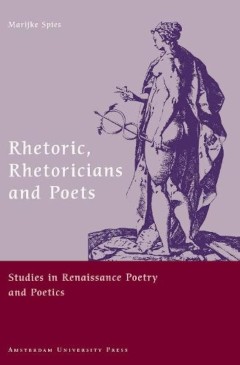
Rhetoric, Rhetoricians and Poets : Studies in Renaissance Poetry and Poetics
The Netherlandish rhetoricians of the sixteenth century have, in the course of the last decades, shed their image of third-rate poets who, lacking all sense of true beauty, were capable only of pompous verbosity and a shallow manipulation of form. The new scholarly assessment has also shed light on the role they played in the cultural and literary life of their time, and it now appears that man…
- Edition
- -
- ISBN/ISSN
- 9789053564004
- Collation
- 169 halaman
- Series Title
- -
- Call Number
- 800 SPI r
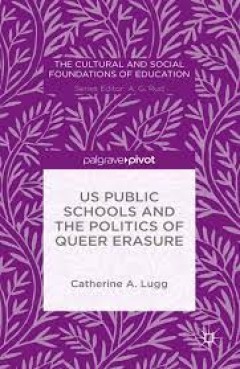
US Public Schools and the Politics of Queer Erasure
This book presents a history of queer erasure in the US public school system, from the 1920s up until today. By focusing on specific events as well as the context in which they occurred, Lugg presents a way forward in improving school policies for both queer youth and queer adults.
- Edition
- -
- ISBN/ISSN
- 978-1-137-53526-9
- Collation
- -
- Series Title
- -
- Call Number
- -
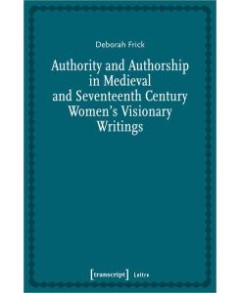
Authority and Authorship in Medieval and Seventeenth Century Women's Visionar…
In medieval and early modern times, female visionary writers used the mode of prophecy to voice their concerns and ideas, against the backdrop of cultural restrictions and negative stereotypes. In this book, Deborah Frick analyses medieval visionary writings by Julian of Norwich and Margery Kempe in comparison to seventeenth-century visionary writings by authors such as Anna Trapnel, Mary Carey…
- Edition
- -
- ISBN/ISSN
- 9783839456897
- Collation
- 156 halaman
- Series Title
- Lettre
- Call Number
- 800 FRI a
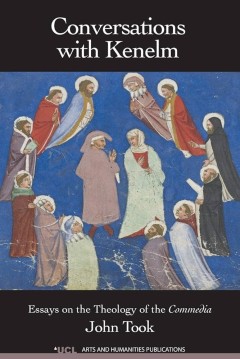
Conversations with Kenelm : Essays on the Theology of the Commedia
In a celebratory moment of the Paradiso, Dante has Thomas go round the circle of sage spirits identifying each in turn in point of proper calling and confirming how it is that self is everywhere present to the other-than-self as a co-efficient of being in the endless and endlessly varied instantiation of that being. The image, at once perfectly Dantean and perfectly resplendent, underlies and i…
- Edition
- -
- ISBN/ISSN
- 9781909188006
- Collation
- 214 halaman
- Series Title
- -
- Call Number
- 800 TOO c

Comparative Practices : Literature, Language, and Culture in Britain's Long E…
Comparisons not only prove fundamental in the epistemological foundation of modernity (Foucault, Luhmann), but they fulfil a central function in social life and the production of art. Taking a cue from the Practice Turn in sociology, the contributors are investigating the role of comparative practices in the formation of eighteenth-century literature and culture. The book conceives of social pr…
- Edition
- -
- ISBN/ISSN
- 9783839457993
- Collation
- 226 halaman
- Series Title
- -
- Call Number
- 800 BOH c

The American Revolution and the Habsburg Monarchy
In 1783, the Peace of Paris treaties famously concluded the American Revolution. However, the Revolution could have come to an end two years earlier had diplomats from the Habsburg realms—the largest continental European power—succeeded in their attempts to convene a Congress of Vienna in 1781. Bringing together materials from nearly fifty American, Austrian, Belgian, British, Czech, Dutch,…
- Edition
- -
- ISBN/ISSN
- 9780813948232
- Collation
- -
- Series Title
- -
- Call Number
- -
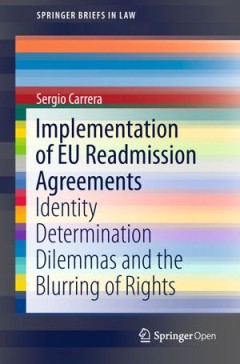
Implementation of EU Readmission Agreements : Identity Determination Dilemmas…
By examining the implementation dynamics of EU Readmission Agreements (EURAs), this book addresses the practical reasons why irregular immigrants cannot be expelled. EURAs are one of the vital legal instruments framing EU external migration law with regard to the expulsion of irregular immigrants, yet their implementation has met with various obstacles. Above all, the process of determining an …
- Edition
- -
- ISBN/ISSN
- 9789811075476
- Collation
- XVII, 83 halaman
- Series Title
- Springer Briefs in Law
- Call Number
- 340 CAR i
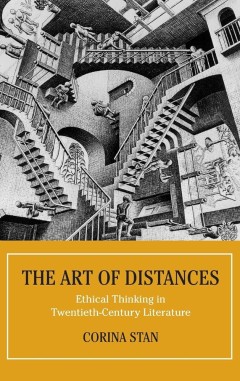
The Art of Distances : Ethical Thinking in Twentieth-Century Literature
The Art of Distances identifies a preoccupation with interpersonal distance in a strand of 20th-century literature that includes the work of Orwell, Morand, Canetti, Murdoch, Benjamin, Ernaux, Grass, and Galgut. Specifically, Stan shows that these authors engage in philosophical meditations on the ethical question of how to live with others and how to find an ideal interpersonal distance at his…
- Edition
- -
- ISBN/ISSN
- 9780810136861
- Collation
- 280 halaman
- Series Title
- -
- Call Number
- 800 STA a

Anglo-Saxon Literary Landscapes : Ecotheory and the Environmental Imagination
Literary scholars have traditionally understood landscapes, whether natural or manmade, as metaphors for humanity instead of concrete settings for people's actions. This book accepts the natural world as such by investigating how Anglo-Saxons interacted with and conceived of their lived environments. Examining Old English poems, such as Beowulf and Judith, as well as descriptions of natural eve…
- Edition
- -
- ISBN/ISSN
- 9789048528387
- Collation
- 208 halaman
- Series Title
- Environmental Humanities in Pre-modern Cultures
- Call Number
- 800 EST a
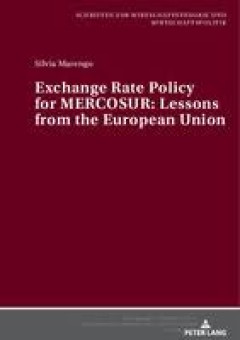
Exchange Rate Policy for MERCOSUR:- Lessons from the European Union Lessons …
In January 1995, four Latin American countries, Argentina, Brazil, Uruguay and Paraguay joined their destinies within a common and ambitious enterprise called MERCOSUR. MERCOSUR, the Common Market of the South, represents an important economic integration area that generates a GDP of $US 600 billion, providing a market of 200 million people spread over an area of 12 million square km. Initially…
- Edition
- -
- ISBN/ISSN
- 9783631751374
- Collation
- -
- Series Title
- -
- Call Number
- -
 Computer Science, Information & General Works
Computer Science, Information & General Works  Philosophy & Psychology
Philosophy & Psychology  Religion
Religion  Social Sciences
Social Sciences  Language
Language  Pure Science
Pure Science  Applied Sciences
Applied Sciences  Art & Recreation
Art & Recreation  Literature
Literature  History & Geography
History & Geography